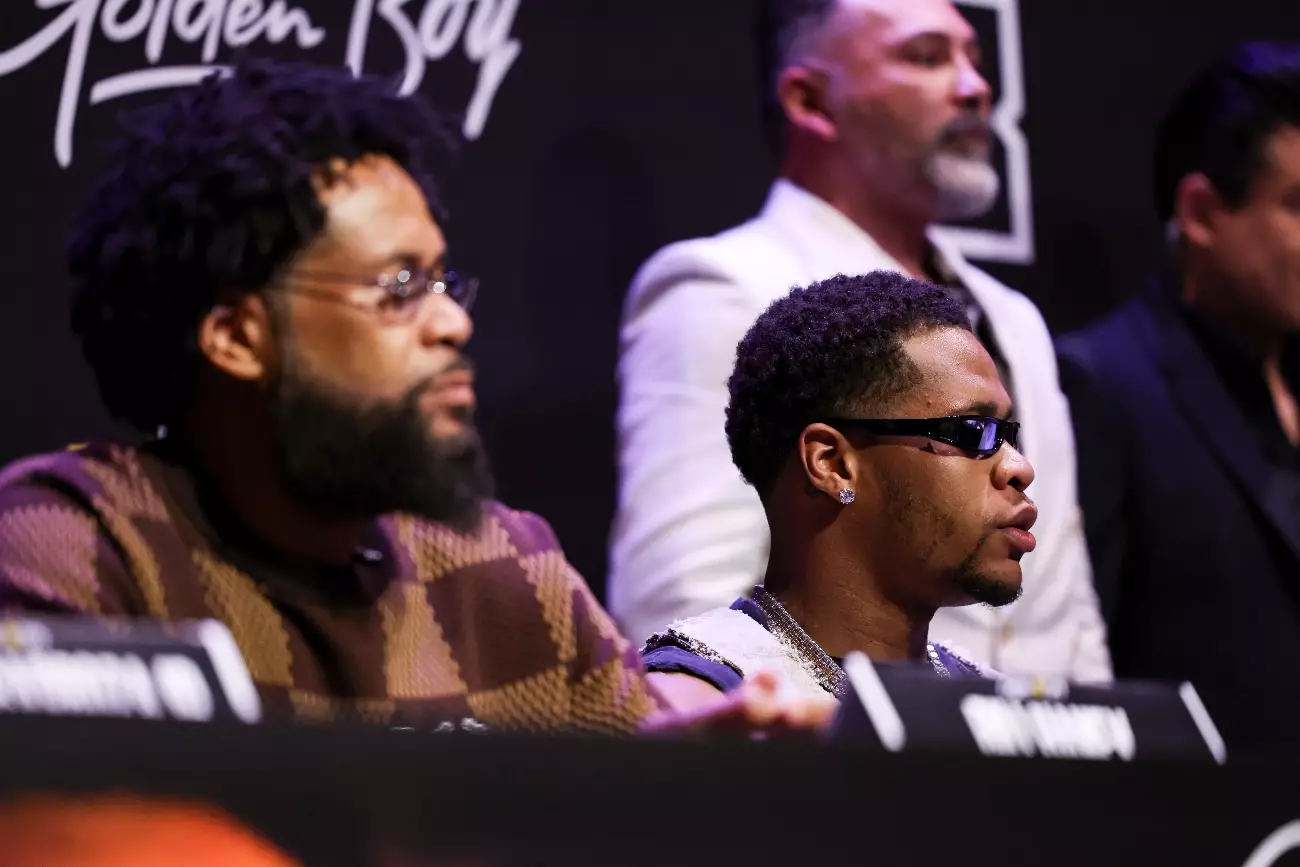BY BOXING HIT STAFF-
In the world of professional boxing, the relationships between promoters, fighters, and their entourages can often be as tumultuous as the bouts themselves. Recently, a public spat between seasoned promoter Eddie Hearn and former two-division world champion Devin Haney has brought to light the expectations that exist in these dynamics. Hearn found himself embroiled in controversy following Haney’s online complaints regarding the lack of ringside tickets during the highly anticipated Anthony Joshua vs. Daniel Dubois event. What is particularly striking about this incident is not just the altercation itself but the context surrounding it, which highlights deeper issues related to communication, entitlement, and the shifting landscape of professional boxing.
The incident transpired when Haney took to social media to voice his frustrations, accusing Hearn of negligence in securing him tickets at a moment’s notice. Hearn’s reaction was one of disbelief, as he pointed out the unreasonableness of Haney’s request. One must evaluate the appropriateness of Haney’s behavior: was it reasonable for him to expect such VIP treatment after certain circumstances had led to a public division between him and Hearn, especially given Haney’s recent performance in the ring against Ryan Garcia? This framing asks readers to consider the shifting power dynamics in the world of boxing and the inherent understanding that relationships are sometimes transactional, founded on mutual benefit.
In the age of social media, grievances are often aired in public rather than resolved privately. Haney’s decision to express his dissatisfaction on a public platform not only altered the tone of the conversation but also deviated from a more constructive approach. Hearn interpreted this as an immature act, reflecting poorly on Haney’s professionalism and his ability to manage conflict—essential traits in any athlete representing the sport at high levels. The exchange at the venue, which was captured on camera and quickly shared on platforms like YouTube, illustrates how these misunderstandings can play out in front of an audience, turning personal disputes into public spectacles.
Hearn’s exasperation was evident when he recounted his side of the story, highlighting that he received Haney’s last-minute request just hours before the event. He articulated that all accessible tickets had already been allocated, primarily to individuals with prior commitments. This assertion not only calls attention to the logistical challenges faced by promoters but also underscores the importance of respectful communication. Proper channels should be utilized, especially when making requests that depend on another’s resources or influence. Furthermore, the expectation for immediate accommodations without ample notice reveals an underlying sense of entitlement that does not align with the norms of professional interactions.
It is crucial to reflect on the context of Haney’s current career trajectory. Following a defeat to Ryan Garcia, Haney’s standing in the boxing world has been weakened. In a sport that thrives on victory, a setback can severely impact not only a fighter’s reputation but also their relationships within the industry. Hearn’s sentiments express a broader truth in combat sports: the hierarchy is in constant flux, and simple losses can render former champions a step away from their deserved attention. Haney’s past status may have granted him certain privileges; however, the loss raised questions about the legitimacy of those expectations moving forward.
Through the lens of this incident, one can argue that both parties failed to navigate their relationship appropriately. Hearn’s response to Haney’s demands seemed rooted in exasperation at a former protégé’s arrogance rather than a strategic consideration of their history. Conversely, Haney’s reliance on social media to voice discontent reflects immaturity, undermining his previous achievements and relationship with a key promoter.
This encounter serves as an instructive tale about professionalism in sports, emphasizing clarity in expectations and communication. For aspiring boxers and promoters alike, the incident is a reminder of the importance of maintaining mutual respect, utilizing effective communication channels, and understanding the inherent transient nature of relationships in high-stakes environments. The boxing world is ruthless, and competitors are not simply defined by their past successes but, equally, by how they manage their present and future interactions. The Hearn-Haney situation stands as a testament to the volatile interplay of personal dynamics within professional sports—a lesson for all involved.


Leave a Reply